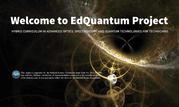Effective Outreach to Non-Specialist Audiences
The internet and social media allow researchers and educators to communicate with more people than could be done through traditional venues such as conferences and classrooms. Formats such as blogs and podcasts are great platforms for members of the ATE community to employ to widely promote their projects or centers and support or even enhance other outreach efforts. Yet this greater reach means that we must work to sharpen our communications skills to be understood by non-technical audiences.
Here are some tips for improving public outreach with non-specialist audiences.
- Avoid abstraction. Use concrete examples or analogies to relate abstract concepts to more broadly shared experiences. For instance, instead of just discussing wind speeds in kilometers per hour, an effective climatologist might also relate them to common weather phenomena such as a breezy day or a hurricane.
- Ask and answer questions. Anticipate questions that non-specialist readers will have along the way. State them and provide the response to ensure audiences understand basic concepts.
- Mix media. It is easier than ever to record basic videos of your computer desktop and voice. Integrate visuals such as graphics and video explanations into written text to provide more depth and clarity in your explanation.
- Watch out for acronyms. We all use them and our professional colleagues know exactly who or what we are talking about - but for those who are not part of our scientific or education community using acronyms can be off putting and confusing. Make sure to use the full name of an organization; even though it's often longer, it's better to use "The National Science Foundation" than "NSF" (and provide a brief reminder of what the organization does) so that everyone understands who or what you're talking about.
- Try alternative formats. We know folks in the ATE community love text, but many audiences today prefer formats such as short videos, infographics, photos, and podcasts. As for the latter, it is not as difficult or expensive as it seems to make high-quality audio recordings. Podcasts can be really effective for outreach efforts, as exemplified by the Preparing Technicians for the Future of Work Podcast, hosted by Mike Lesiecki.
- Remember to consider accessibility – make sure to include captions in videos and alt text for images. Learn more about making your work accessible and tip sheets from AccessATE.








